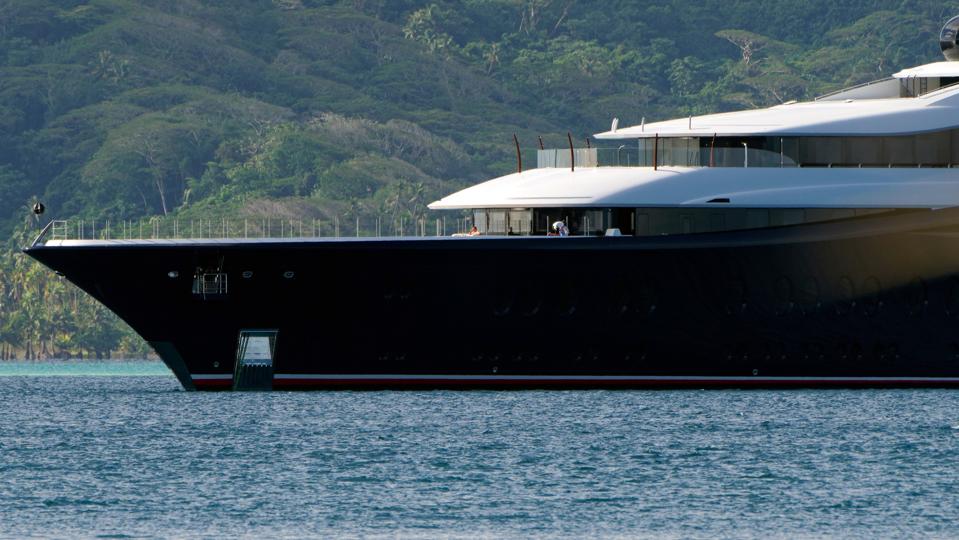Published on
November 21, 2025
The ultra wealthy held up the global luxury goods market this year despite global economic and political uncertainties, and have shifted their spending away from traditional luxury goods and more toward high-end experiences like vacations and fine dining, a new report shows.

Billionaire Mark Zuckerberg’s yacht, The Launchpad, on Dec. 19, 2024 in Raiatea, French Polynesia.
Getty Images
Key Takeaways
Global spending across the luxury industry is set to reach $1.66 trillion by the end of the year, a study from Bain & Company and Altaggamma shows, steady with last year despite a shrinking customer base and less spending from so-called “aspirational,” or lower-net-worth, shoppers.
The year so far has seen a “tectonic shift”in luxury spending as shoppers splurge on experiences like hospitality cruises, high-end hotel stays, yachts, private jets and fine dining, and spend less in the traditional spaces of luxury cars, fine art and leather goods.
Spending on luxury cruises rose 12% this year over 2024 at a constant exchange rate, the report says, while spending on private jets and yachts rose 11%, fine dining is up 7% and luxury hospitality is up 7%.
To the contrary, spending on personal luxury goods has remained flat, luxury car spending is down 4% and fine art spending is down 7%.
Overall, the luxury market consumer base has shrunk to an estimated 340 million shoppers in 2025, down from 400 million in 2022, but “big spenders” are still showing up, representing almost half of the market.
What To Watch For
While the personal luxury goods market is stable, Bain and Altagamma warn the industry is facing a “moment of truth” thanks to economic and geopolitical uncertainties .Watch sales, impacted by high tariffs on Switzerland, are fueling a resale market, the report says, and leather goods are wobbling with no “hero” purse emerging to boost sales. Jewelry and eyewear are leading growth, but shoe sales, skincare and makeup are suffering.
Crucial Quote
“This is luxury’s moment of truth: to rise through ethics, inclusivity, and authenticity, or retreat into elitism,” Claudia D’Arpizio, leader of luxury goods at Bain & Company, said in a statement.
Tangent
French luxury goods conglomerate LVMH, which owns brands like Tiffany & Co., Louis Vuitton, Hennessy, Dom Perignon and others, didn’t post growth this year until the third quarter. Most of the year was weighed down by tariffs and other economic disruptions, the company said, but organic growth returned for the third quarter at 1% year-on-year.
Surprising Fact
Despite the decline in fine art sales—they dipped 12% from 2023 to 2024—several high-dollar auctions have surpassed expectations this week. “Portrait of Elisabeth Lederer” by Gustav Klimt, one of only two full-length Klimt portraits left in private hands, sold for $236.3 million as part of late cosmetics billionaire Leonard Lauder’s personal collection, well surpassing its $150 million estimation. An abstract painting by Mark Rothko sold for $62.1 million on Monday, above its estimated $50 million price, and “Blumenwiese” (“Blooming Meadow”) by Gustav Klimt sold for $86 million (est. $80 million). Sotheby’s also sold a famed solid gold toilet that was once offered to President Donald Trump for $12 million.
Look back on the week that was with hand-picked articles from Australia and around the world. Sign up to the Forbes Australia newsletter here or become a member here.


Dining and Cooking